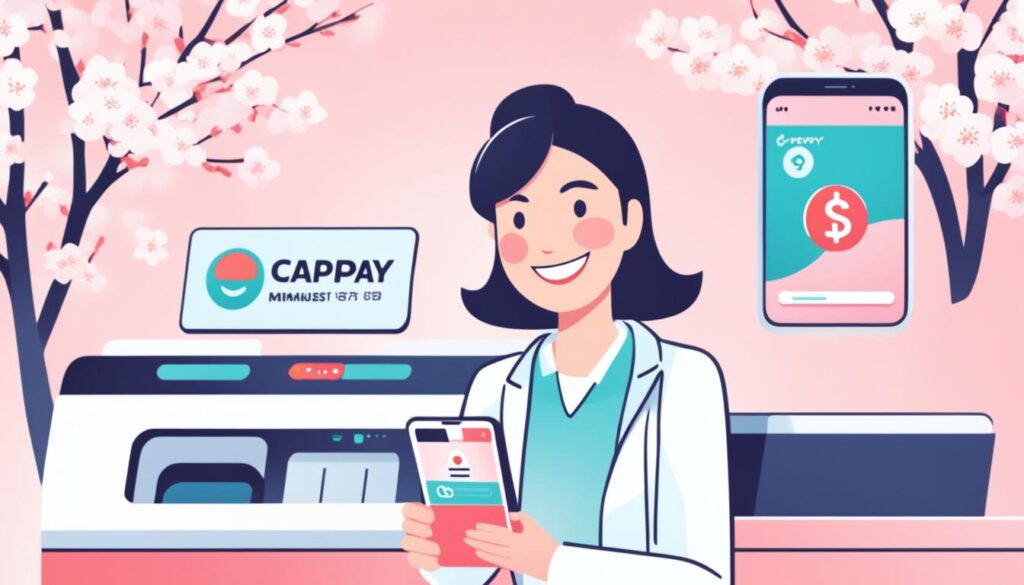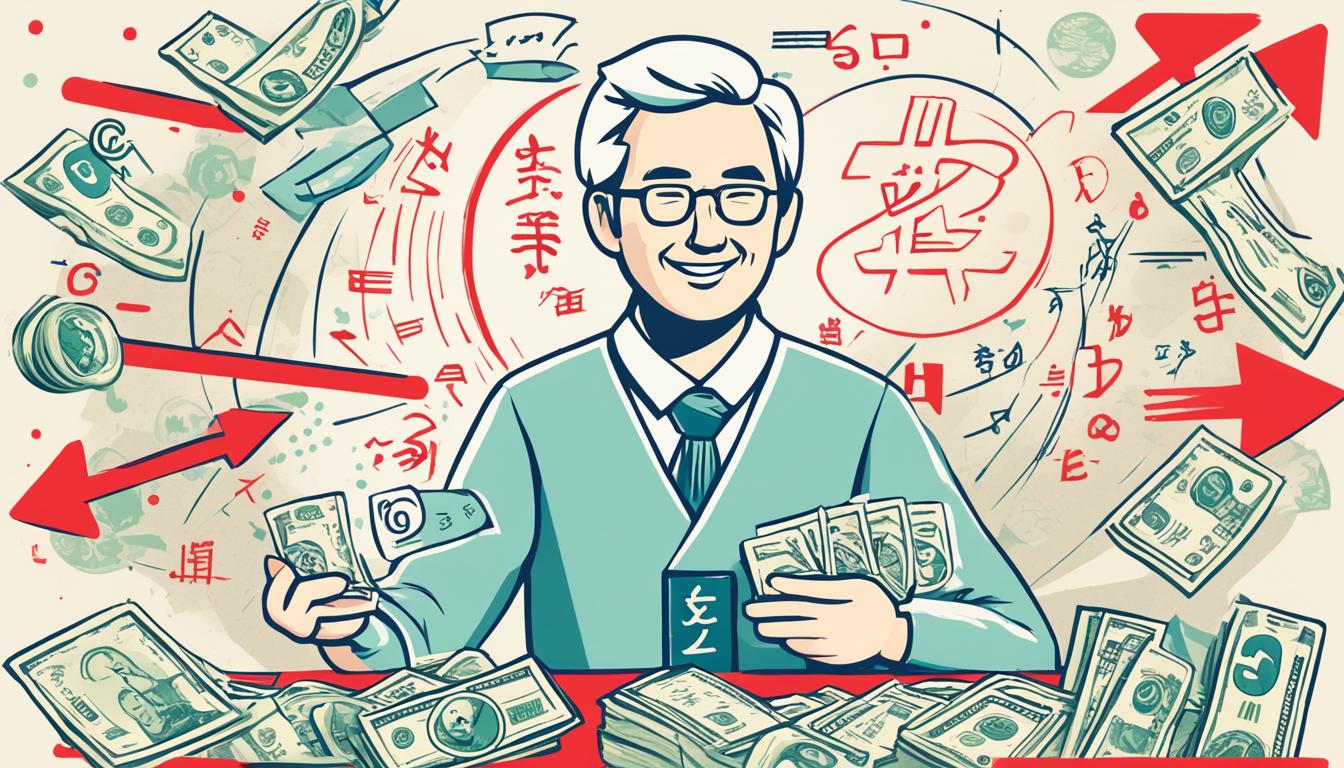When traveling in Japan, it’s important to know how to say “money exchange” in Japanese. The phrase you’re looking for is “ryougae,” which literally translates to “currency exchange” in English. It’s useful to learn this phrase so that you can effortlessly communicate your currency needs during your travels in Japan.
Japanese Yen (JPY)
The official currency of Japan is the Japanese yen (JPY). The currency symbol for yen is ¥, and it is often pronounced as “en” in Japanese. The symbol ¥ is derived from the Japanese kanji character 円, which means “circle” in Japanese.
Fun fact: The exchange rate was initially fixed at 360 yen to 1 US dollar. The headquarter building of the Bank of Japan is shaped like the yen kanji, 円.
Denominations and Coins
The Japanese yen is available in 10 different denominations, featuring a range of coins and bills. Understanding the various yen values and coin types is essential for effectively managing your currency during your time in Japan.
Coins in Japan
Coins play a significant role in everyday transactions in Japan. There are six coins in circulation:
| Coin | Value (yen) |
|---|---|
| 1 yen | 1 |
| 5 yen | 5 |
| 10 yen | 10 |
| 50 yen | 50 |
| 100 yen | 100 |
| 500 yen | 500 |
Yen Denominations
In addition to coins, yen is also available in the form of bills or notes. There are four distinct denominations:
| Note | Value (yen) |
|---|---|
| 1,000 yen | 1,000 |
| 2,000 yen | 2,000 |
| 5,000 yen | 5,000 |
| 10,000 yen | 10,000 |
It’s worth noting that the 2,000 yen note is relatively rare and may not be easily obtained.
Each yen coin and bill features its own unique design and characteristics, making them visually appealing and collectible for some individuals.
Payment Methods

When it comes to making payments in Japan, you have several options available to you. While cash is still widely used, especially in rural areas and smaller businesses, credit and debit cards are becoming more accepted. Additionally, there are IC cards and digital cashless payment methods that offer convenience and ease of use.
If you prefer using cash, it’s important to have small denominations of yen on hand as many ticket machines and vending machines only accept smaller bills and coins. This will ensure a smooth transaction process.
Credit and debit cards, such as MasterCard, Visa, and JCB, are commonly accepted in Japan. They offer convenience and security, especially for larger purchases or in urban areas where card acceptance is more prevalent.
IC cards, such as Suica and PASMO, are widely used for public transportation in Japan. These contactless smart cards can be loaded with digital cash and used for payments at various establishments, including convenience stores and vending machines.
For those looking for a more digital payment experience, there are several cashless options available. PayPay, Line Pay, and R Pay are popular digital payment platforms that can be used with a Japanese phone number. These platforms allow you to make quick and secure mobile payments at participating merchants.
Comparison of Payment Methods
| Payment Method | Usage | Accepted | Convenience | Security |
|---|---|---|---|---|
| Cash | Widely used | Accepted everywhere | Requires carrying physical cash | Low risk of fraud |
| Credit/Debit Cards | Increasingly accepted | Commonly accepted | Convenient for larger purchases | Offers buyer protection |
| IC Cards | Used for public transportation and payments | Accepted at various establishments | Convenient for frequent travelers | Requires physical card |
| Digital Cashless Payments | Mobile payments | Accepted at participating merchants | Quick and convenient | Secure transaction process |
Getting Yen
When visiting Japan, it’s important to have Japanese yen for your transactions. Here are some convenient methods to acquire yen:
Japan Post ATMs
Japan Post ATMs are available at over 26,000 locations nationwide, providing a convenient option for currency withdrawal. These ATMs accept major international cards and offer multilingual options for ease of use.
7-Eleven ATMs
7-Eleven ATMs can be found at over 20,000 7-Eleven convenience stores across Japan. These ATMs also offer currency withdrawal services, making them easily accessible for travelers.
Wise
Wise, formerly known as TransferWise, is a popular online platform that allows you to transfer funds to a local Japanese bank account or obtain a Wise debit card for convenient access to yen during your trip.
When using ATMs or other currency exchange services, it’s important to be aware of any potential service charges or fees that may apply.
Exchanging Currencies
If you need to exchange currencies in Japan, you have several options at your disposal. Authorized foreign exchange places, such as banks and money changers like Travelex, provide convenient currency exchange services. You can find these places at airports and in major cities.
Authorized Foreign Exchange Places:
| Location | Operating Hours |
|---|---|
| Banks | Varies, but usually longer than smaller exchange places |
| Money Changers (e.g., Travelex) | Varies, but typically follow the operating hours of the establishment |
| Hotels and Large Department Stores | Varies, but may charge extra fees and offer less favorable rates |
Traveler’s checks are another option for exchanging money in Japan. They are widely accepted by leading banks, hotels, and stores in major cities. However, there are a few things to keep in mind when using traveler’s checks:
- Ensure the checks are drawn from a recognized and reputable bank, as checks from some foreign banks may incur large fees or not be accepted at all.
- Always carry proper identification when using traveler’s checks, as it may be required at the time of exchange.
- Keep your checks secure and make a note of their serial numbers in case of loss or theft.
Exchanging your currency at authorized places and utilizing traveler’s checks can provide you with a convenient and secure way to obtain Japanese yen during your trip.
Money Etiquette and Tips
When it comes to using money in Japan, it’s essential to be aware of the cultural norms and etiquette surrounding financial transactions. Understanding these customs will ensure you navigate through your monetary interactions smoothly during your time in Japan.
In Japan, tipping is not customary, unlike in many Western countries. It’s important to note that leaving a tip at a restaurant or for a taxi driver may lead to confusion. In fact, the recipient may even chase you down to return the money, assuming you forgot it.
Instead of directly handing money to cashiers, you’ll often find a small tray provided at most establishments. This tray is intended for customers to place their money on, allowing for a more respectful and efficient exchange.
One thing you can rest assured about when it comes to money in Japan is counterfeit currency. Counterfeit money is virtually non-existent in Japan, meaning you don’t have to worry about receiving counterfeit bills during your transactions.
With these money etiquette tips in mind, you can confidently handle your financial interactions in Japan and enjoy a seamless experience.
Conclusion
In conclusion, when planning your trip to Japan, it is essential to have a good understanding of the basics of money exchange. Familiarizing yourself with Japanese yen denominations, payment methods, and currency exchange options will enable you to navigate financial transactions more efficiently during your time in Japan.
Remember to carry small denominations of yen, as many ticket and vending machines only accept smaller bills and coins. Be cautious of service charges and fees that may be associated with using ATMs or other currency exchange services.
Additionally, it’s important to follow local money etiquette, such as not tipping at restaurants or handing money directly to cashiers. By respecting these cultural customs, you can ensure smooth financial interactions throughout your trip. Finally, learning some basic Japanese phrases, such as “ryougae” for “currency exchange,” can greatly enhance your ability to communicate your currency needs.
With these tips in mind, you are now well-equipped to handle your money matters in Japan. Enjoy your trip and make the most of your financial transactions while exploring this beautiful country!

